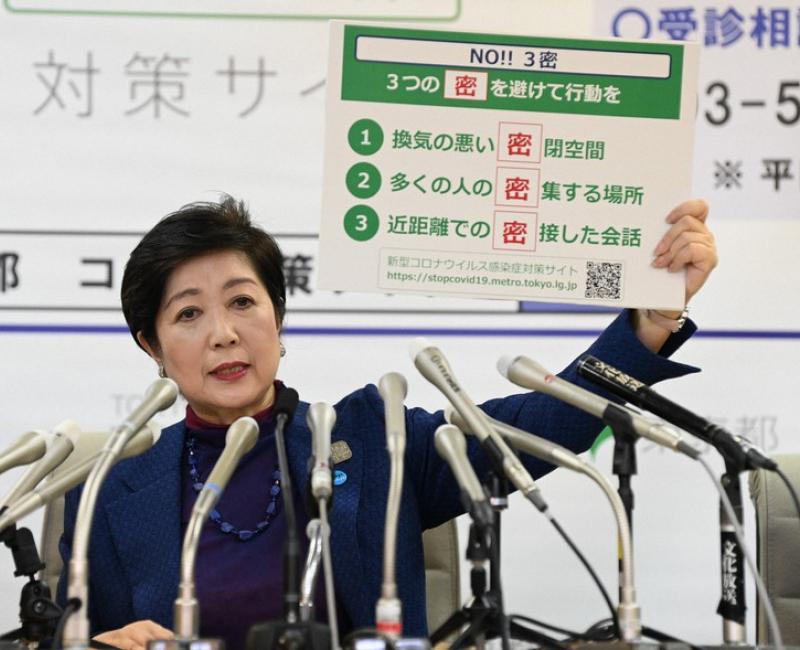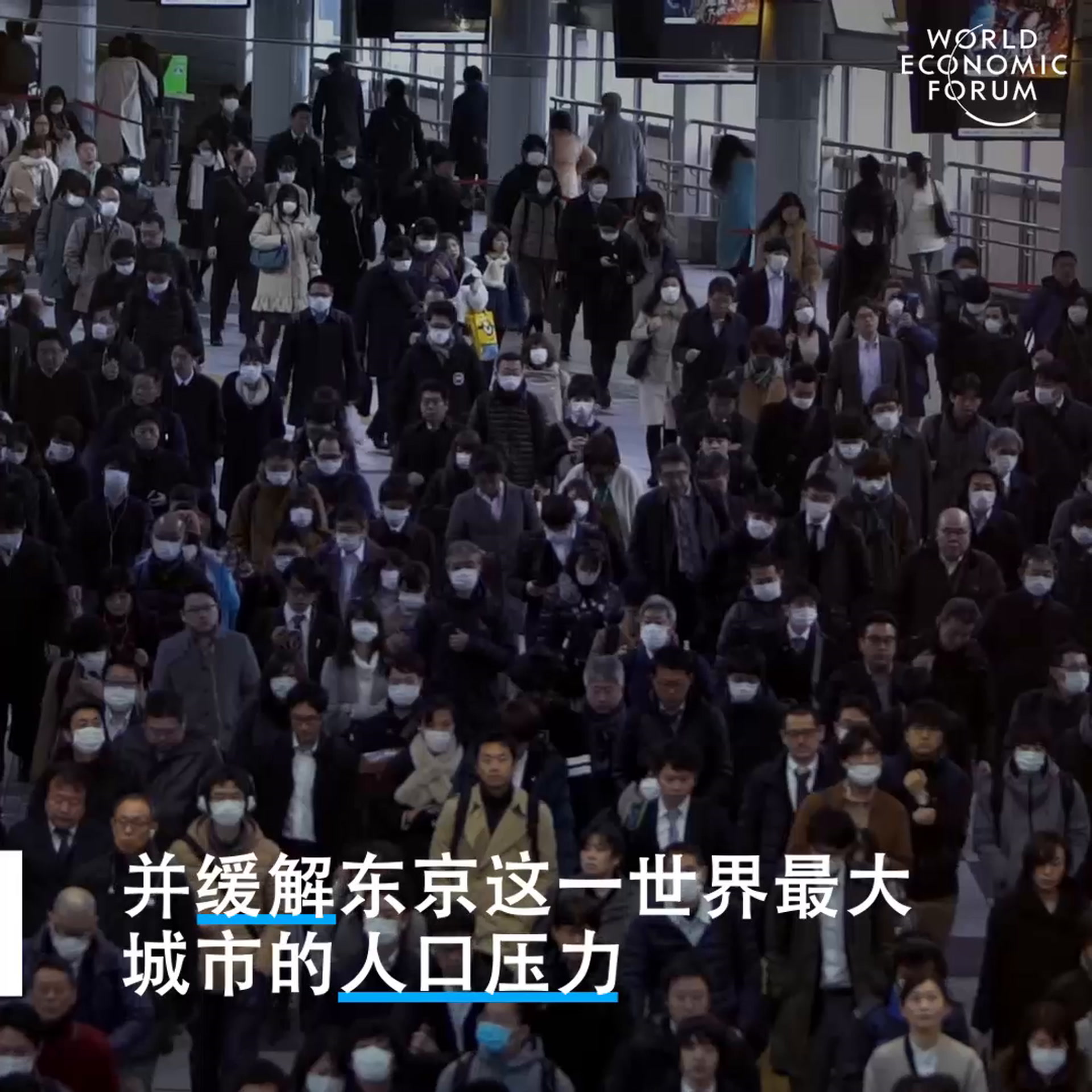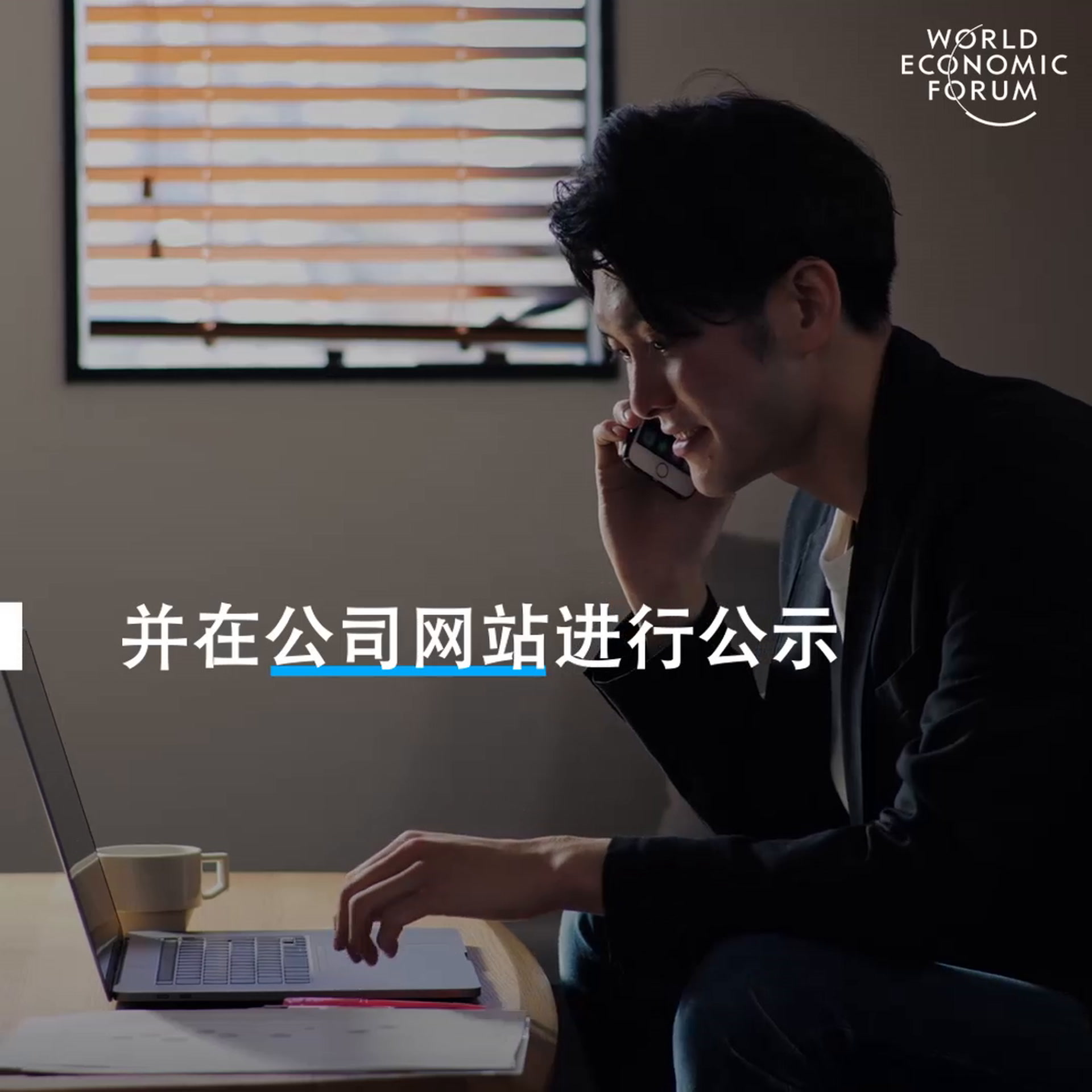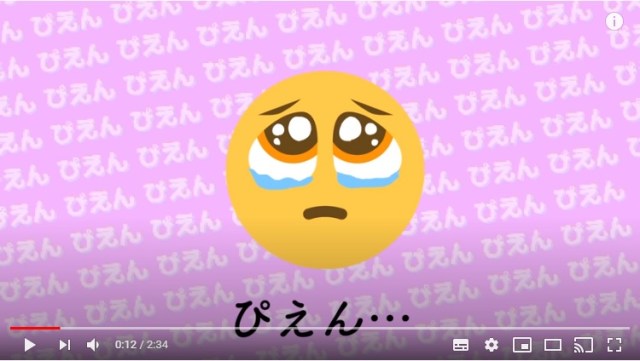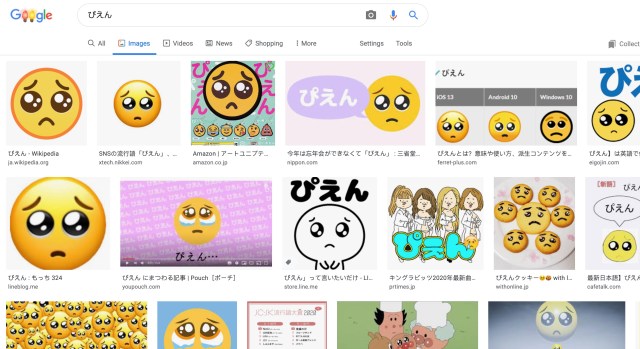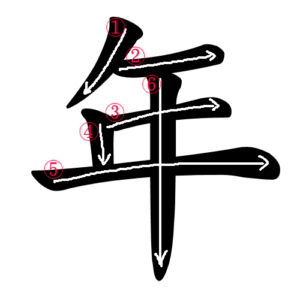The kanji of the year (今年の漢字, Kotoshi no kanji) is a character chosen by the Japanese Kanji Proficiency Society (財団法人日本漢字能力検定協会, Zaidan hōjin Nihon Kanji Nōryoku kentei kyōkai) through a national ballot in Japan, starting in 1995. The character with the most votes, selected to represent the events of that year, is announced in a ceremony on December 12 (Kanji Day) at Kiyomizu Temple.
1995
shin
furu-u
quake
1996
shoku
ku-u
food
eat
1997
tou
tao-su
collapse
knock down
1998
doku
poison
1999
matsu
sue
end
2000
kin
kane
gold
money
2001
sen
tataka-u
battle
2002
ki
kae-ru
return
2003
ko
tora
tiger
2004
sai
wazawa-i
disaster
2005
ai
ito-shii
love
2006
mei
inochi
life
2007
gi
nise
deception
2008
hen
kawa-ru
change
2009
shin
atara-shii
new
2010
sho
atsu-i
hot
2011
han
kizuna
bonds
2012
kin
kane
gold
money
2013
rin
wa
wheel
ring
2014
zei
mitsugi
tax
2015
an
yasu
safety
2016
kin
kane
gold
money
2017
hoku
kita
north
2018
sai
wazawa-i
disaster
2019
rei
ryou
good
order
2020
mitsu
hiso-ka
secret
close
2021
kin
kane
gold
money
2022
sen
ikusa
war
battle
How did the Japanese perceive 2022? Let’s look for hints with the Word of the Year selection, unveiled each early December by Jiyû Kokuminsha, the publisher of the annual Gendai Yôgo no Kiso Chishiki («Encyclopedia of contemporary words») in association with U-Can, another publisher and provider of distance education courses. Since 1984, about thirty words are analyzed, among which ten of them are chosen at the end of the year to constitute the U-Can shingo-ryûkô go top 10 («U-Can Top 10 of neologisms and trend words»).
The jury was composed of six panelists: intellectuals from the academic world, arts, press and entertainment sectors, and Jiyû Kokuminsha’s encyclopedia publication director. The 10 words or expressions of the final ranking are chosen for what they show of Japanese society at the moment.
Japan’s 2022 year was specially impacted by the murder of former Prime Minister Shinzo Abe and the background of the lingering Coronavirus 🦠, even if it was directly mentioned by only 2 words. International politics are barely represented with only one reference to Ukraine, and the words’ selection overall does not show an exciting year, even if sport is still a safe field.
村神様 (Murakami-sama) is the word of the year 2022
Again, the word of the year relates to Japan’s national sport, baseball, and focuses on Munetaka Murakami of the Tokyo Yakult Swallows professional team. He is indeed, at 22 years old, the youngest player to win the batting Triple Crown, that is to say to be ranked 1rst in the 3 statistical categories of this position in the season. He notably performed 56 home run. His fans refer to him as «god» or «godly,» replacing the second character of his name 上 (kami, «up») by 神 (kami, «god») to highlight his talent.
The rest of the Top 10: an eclectic selection
2. キーウ (Kiiu)
The name of the Ukrainian capital ranks 2nd, to remind of the war ongoing since February 24. The Japanese Ministry of Foreign Affairs announced on March 31 that henceforth all communication would use the Ukrainian transcription キーウ (Kiiu) instead of the former Russian transcription キエフ (Kiefu) to show support to the country under attack.
3. きつねダンス (Kitsune Dance)
On a much lighter tone, Kitsune Dance is a song and choreography performed by the cheerleaders of the Hokkaidô Nihon Ham Fighters baseball professional team, and as viral as Baby Shark. The girls dance cutely, wearing hairy fox ears and a fox tail on their skirts. The moves are easy so anyone can dance to cheer on their team.
4. 国葬儀 (Kokusôgi)
Oddly only ranked 4th, said state funeral was for Shinzo Abe, former Prime Minister of Japan, killed in July 2022 during an election rally. While Japanese politicians were almost unanimously convinced of the necessity of a national homage, the population was not really on the same page, and there were even agitated demonstrations against it. Contrary to its habit, the government ignored the opinion polls showing a strong opposition, which was partly based on the financial burden the state funeral would add to the public finances, and therefore alienated part of the Japanese population.
5. 宗教2世 (Shûkyô nisei)
Shûkyô nisei is a tag for people educated according to the principles of a religion their parents converted to. It was put under the spotlight in the wake of Shinzo Abe’s assassination by a man who accused the Unification Church and the former Prime Minister, who had close ties with the religious group, of ruining his family.
6. 知らんけど (Shiran’ kedo)
«Shiran’ kedo» is a closing phrase used in a relatively carefree way, to avoid being too assertive. Originating from the Kansai area, its use spread to the whole country and the number of people using it is noticeably increasing. According to U-can panelists, people tend to use this phrase more due to the new social habits developed in Covid times, and particularly the one of avoiding meeting people in person, and people all-together.
7. スマホショルダー (Sumahoshorudâ)
This portmanteau word is made from «smartphone 📱» and «shoulder» and refers to a pouch and / or a lanyard to hold one’s smartphone around the neck or on the shoulder and leave the hands free. This word was chosen to highlight the ubiquity of smartphone in society, and especially among young people who use it intensively. The device has almost become an extension of the body.
8. てまえどり (Temae dori)
Temae dori is a reference to the way fresh food is laid out in supermarkets or konbinis’ aisles: quite logically, food with the nearest expiry date is placed at the front. Anti food waste campaigns remind that if the food is to be eaten quickly, it is safe to take the products at the front, as the expired food is thrown away anyway.
9. Yakult (ヤクルト) 1000
It is the name of one of the last products of the Yakult brand, renowned for its probiotic drinks. Yakult 1000 is advertised as having the highest content of Lactobacillus casei Shirota, a beneficial bacteria, in their dietary supplement range. As Coronavirus is lingering, the beverage is considered as a way to boost the immune system, reduce stress, induce a good sleep and help bowel functions. To the point that it is often out of stock.
10. 悪い円安 (Warui en’yasu)
The word describes the historical low level of the Yen 💴, even breaking 30-years old records ($1 for ¥152). Companies listed on the stock exchange do benefit from it, but not households who have to face a rise of the consumption prices due to this «unfavorably weak yen.» Inflation is also impacting Japan, though not at the same levels than the United States or Europe.
Special Prize: 青春って、すごく密なので (Seishun’tte, sugoku mitsu nanode)
«A youth disrupted by a lot of restrictions» are words said by Wataru Sue, the coach of the winning team of the high-school Koshien this summer, to praise the young athletes. Not only is it the first time a team originating from the Tohoku area wins the prestigious baseball championship, but it also happened in a time where young people’s life was greatly limited by the constraints due to Covid, and especially the 3 C (or 3密 san-mitsu, 2020’s word of the year).
Sports always under the spotlight
Subjects were not as clearly divided as in 2021, but sport is still an important topic (2 words in the Top 10) with 3 other words related to baseball: 大谷ルール (Ootani rule), in reference to Shohei Ohtani who made history by being selected at both pitcher and hitter positions for the same game in the US major league. Reiwa no Kaibutsu (令和の怪物, «Monster of the Reiwa Era») is the nickname given to Rôki Sasaki (born in 2001), pitcher for the Chiba Lotte Marines, who broke Shohei Ohtani’s high-school fastball record (160 km/h) by throwing a 163-kilometre-per-hour (101 mph) fastball. BIGBOSS is an affectionate nickname for Tsuyoshi Shinjô, the coach of the Hokkaido Nippon-Ham Fighters for the 2022 season, who occasionally dances the Kitsune Dance to cheer on his team.
Coronavirus is directly mentionned by only 2 words (compared to at least 7 in 2021): オミクロン株 Omicron kabu, the Omicron strain identified in Japan from November 2021, and 顔パンツ kao pantsu (face underwear) as the sanitary mask 😷 has become an essential item for going out, as much as an underwear, to the point of feeling «ashamed if not wearing it.»
On the political and economical aspects, the ruling government has not been forgotten with 丁寧な説明 (teinei na setsumei) «a detailed explanation,» an expression used by Kishida Cabinet to avoid answering touchy questions. A new fiscal system (インボイス制度, Invoice seido, Invoice-based system) that is to be implemented from October 2023 also caught the panelists’ attention. Lastly, a Ministry of children and family (こども家庭庁, Kodomo katei chô) will be initiated from 2023, April 1rst, for child welfare and support to families with children.
Societal matters are varied, such as the notion of re-skilling (リスキリング, skill improvement / continuous education) necessary for a better employability or to acquire new skills in a current job. Discrimination problems, especially prejudice based on the look leading to favoritism of beautiful people (ルッキズム, Lookism), and the OBN (オールド・ボーイズ・ネットワーク, «Old Boyz Network»), criticizing the networking habits in mainly male organizations that end up foster self-segregation. The job of Intimacy Coordinator (インティマシー・コーディネーター), that was brought to light by #MeToo is highlighted as it increasingly becomes an asset of movies or TV shows sets to ensure that everyone taking part in the filming understands what entails an intimate scene, and that actors can work in a safe environment.
On a lighter tone, «nun katsu» (ヌン活, Afternoon lifestyle) is popular among young women who enjoy their tea time in a refined decor, with instagramable patries. Gachi Chûka (ガチ中華 , «Truly Chinese») is an informal word for restaurants serving Chinese regional cuisine in Japan, without catering to the Japanese taste, that are increasingly numerous and attract Chinese expatriates in need of comfort food.
Technology is introduced by the words メタバース Metaverse and オーディオブック Audiobook, the later seeing an increase of users thanks to their availability on smartphones and through subscriptions.
Lastly, to end on the entertainment topic, the panel had also selected: ヤー! パワー! (Yaa ! Power!) the favorite posing phrase of comedian / body builder Nakayama Kinnikun. NHK’s morning drama Chimu dondon, broadcast in 2022 from April to September, appears thanks to #ちむどんどん反省会 (#Chimudondon hanseikai, #ChimudondonDebriefed): each episode was diligently commented by the fans on the social networks, and especially on Twitter. Last but not least, SPY×FAMILY, the family action and comedy manga has been serialized in an anime. Anya, the peanut-loving main character brings her childish innocence to a story that interestingly resonates with reality.
This Top 10 sheds new light on Japan, and especially on the way some Japanese see their own country. Jiyû Kokuminsha’s panelists do not hide their disapproval of the ruling government, which can be surprising if we believe in Japanese clichés about the uniformity of Japanese society.
Reading their arguments and analyzing the context offer the discovery of many underlying trends and expressions, that are not always visible to a Western audience, due to numerous obstacles such as language and culture.
Previous years
Words related to sports are still dominant. Politics are quite important as well, and Japan’s former Prime minister Shinzô Abe’s name was often cited, be it for political controversial decisions, scandals and recently even his death.
2021
- リアル二刀流 (Real nitôryû)/ショータイム (Show-time): Both words ranked first ex-aequo and refer to Shohei Ohtani (born in 1994), a Japanese player in the American baseball major league since 2018. In 2021, he became the first player for over a century to be able to play at the same level as batter and pitcher. Shô-time is a pun on Ohtani’s first name, Shôhei, shortened to «Shô» to which was affixed the English word «time,» to create the nickname «Showtime,» which is to be expected when he enters the field.
- うっせぇわ (Ussee wa) is a song by Ado (born in 2002), released in October 2020 and that quickly became N°1 of sales and streaming. The singer expresses the rejection and the exasperation the younger generations feel towards the never ending injunctions of Japanese society.
- 親ガチャ (Oya gacha) is a portmanteau word composed of «oya» meaning «parents» and «gacha» the onomatopoeia from the noise made by a gachapon, the capsule toys vending machine. It means that in the life lottery, destiny is for the most part decided from the moment and the family you were born into, and efforts or willpower will not change much to the situation.
2020
- 3密 (san mitsu) or 3C: slogan created by the Japanese Ministry of Health in March 2020 to help prevent the spread of Coronavirus by avoiding the 3Cs: Confined spaces (密閉 mippei); Crowded places (密集 misshû); Close-contact settings (密接 missetsu).
- GoToキャンペーン (GoTo Campaign): an extraordinary budget to sustain Japanese economy during the Coronavirus pandemic. The campaigns have globally reached their goal of maintaining a level of activity, but as they encouraged population travel, They are now considered as one of the way Covid-19 further spread in Japan.
- 鬼滅の刃 (Kimetsu no yaiba): Demon Slayer, the manga by Koyoharu Kotoge, whose publishing ended in May 2020. The movie (Demon Slayer: Infinity Train 🚅) was released in October 2020 and broke all the Japanese box-office’s records.
2019
- ONE TEAM: slogan of the Japanese Rugby Team, the Brave Blossoms, during the Rugby World Cup, to highlight in a positive way the diversity of its members’ origins, with only half of them of Japanese citizenship.
- 計画運休 (keikaku unkyû): «planned cancellation» is the security scheme to stop all transportation means before a typhoon 🌀 hits to limit damages. The expression was often employed in 2019, a year when the meteorological phenomenons were particularly powerful and destructive.
- 軽減税率 (keigen zeiritsu): the «reduced tax rate» is the temporary measure that aims to smoothe the 10% VAT rise, with an implementation limited to non-essential products in its first stage.
2018
- そだねー (sodanee): «that’s right», was used and popularized by Japan’s women curling team, winner of a bronze medal in the 2018 PyeongChang winter Olympics 🏅;
- eスポーツ (isupootsu): «e-sport», the electronic sports, as a Japanese won a gold medal in an Asian e-sport tournament in summer 2018. Sodanee and e-sport were the two first entries of 2018 Top 10;
- #MeToo: the famous hashtag ranked 10th.
2017
- インスタ映え (Insta bae): «Instagrammable», to commemorate the advent of the new famous social network;
- 忖度 (sontaku): «assumption», ex-aequo with Insta bae, was used by the founder of Morimoto Gakuen Group, in a fraud scandal of the same name, to which Japan’s Prime minister Shinzô Abe’s name has been linked;
- J アラート (J araato): «J ALERT», at the fourth rank, is the national warning system to alert the population in case of danger. It was widely used in 2017, due to North-Korea’s multiple missile launchings.
2016
- 神ってる (kamitteru): «he’s divine», said about a baseball player who scored two decisive home runs in two consecutive matches;
- トランプ現象 (Toranpu genshô): «Trump phenomenon», ranked at the third place, reflecting the shock of the discovery of the new United States president and his fancy language;
- 盛り土 (moritsuchi): «terrace», ranked sixth, reminds of the difficulties in the the fish market’s transfer from Tsukiji to Toyosu. It was postponed by Tokyo Governor Yuriko Koike to allow the soil decontamination of the new site.
2015
- 爆買い (bakugai): is a Japanese slang word meaning «shopping spree» that Chinese tourists encounter when visiting Japan, due to their high purchasing power. It is ex-aequo with:
- トリプルスリー (toripurusurii): «Triple Three», accomplished by professional baseball player Tetsuto Yamada with 30% of batting average, 30 stolen bases and 30 home runs over one season;
- エンブレム (enburemu): «emblem», at the sixth rank, to recall the choice of the Tokyo 2020 Olympics ‘emblem, which much passionated the Japanese in 2015.
2014
- ダメよ~ダメダメ (Dame yo dame dame): «No way, no, no!», from a Japanese comic duets’ phrase making fun of the Japanese who are yet to learn to assertively say no, even when their government tried to amend the 1947 pacifist Constitution of Japan, in July 2014;
- 集団的自衛権 (shûdanteki jieiken): «the right of collective self-defense», ex-aequo with Dame yo dame dame, and in the same context, is the argument employed by Japan’s Prime minister Shinzô Abe to justify the amendments he wanted to enforce in the Japanese Constitution;
- ありのままで (ari no mama de): «The way I am», at the third place, is the Japanese version of «Let it go», the main song from the movie Frozen, released in 2014, and as successful as in the rest of the world.
2013
- お・も・て・な・し (O MO TE NA SHI): «hospitality». In 2013, four special prizes were awarded, among which one to «hospitality» used by announcer Christel Takikawa during her presentation speech for the attribution of 2020 Olympics to Japan;
- アベノミクス (Abenomikusu): «Abenomics», at the fifth rank, is the name of the economic policy that Prime minister Shinzô Abe has been implementing in Japan since December 2012;
- ご当地キャラ (gotôchi kyara): «the local mascot», at the sixth rank, is a reminder of the trend launched in 2007 by Hiko-nyan, the local mascot of Hikone, to have a fictional character represent a city or a region. In 2013, Kumamon, Kumamoto’s mascot hit a record in popularity.

What were the three top Words of the Year in Japan in 2022? Image: Unsplash/Takashi Miyazaki
Share:
Stay up to date:
Japan
Don’t miss any update on this topic
Create a free account and access your personalized content collection with our latest publications and analyses.
License and Republishing
World Economic Forum articles may be republished in accordance with the Creative Commons Attribution-NonCommercial-NoDerivatives 4.0 International Public License, and in accordance with our Terms of Use.
The views expressed in this article are those of the author alone and not the World Economic Forum.
Related topics:
Share:
Global Agenda
The Agenda Weekly
A weekly update of the most important issues driving the global agenda

Katharina Buchholz
March 22, 2023

Naoko Kutty and Naoko Tochibayashi
March 9, 2023

Yuma Sumi, Umer Sadiq and Ryuji Shimonishi
February 27, 2023
2021 soon ends.
Many things happened this year and word of the year reflects the things!
Here, I picked up Japanese top 10 word of the year!!
Let’s see them to catch up with Japanese trend in 2021!!
Contents
- 1. Real Two-Way / Show-Time
- 2. Ussee Wa! (Shut Up!)
- 3. Oya Gacha (Parent Lottery)
- 4. Gon Zeme / Bitta bita
- 5. Gender Equality
- 6. Jinryu (Flow of People)
- 7. Sugimu Rising
- 8. Z Generation
- 9. Bottakuri Danshaku (Baron Ripper-off )
- 10. Mokusyoku (Keep your mask on unless eating)
- 11. Summary
Real Two-Way / Show-Time (リアル二刀流 / ショータイム)
Top 1 is all about Shohei Ohtani.
If you are a big fan of baseball, you must know about Shohei Ohtani of Los Angeles Angels.
He received a Major League Baseball MVP award this year!
Surprising point of Shohei Ohtani is he is a two-way player.
In the same game, he plays as a designated hitter and starting pitcher.
He almost broke the record of double-digit wins and home runs in a single season made by Babe Ruth for the first time in 103 years.
Although it did not happen, he is said to be the most two-way player ever.
The phrase show-time is the phrase announcers call him when he appears.
That’s a kind of pun mixing his name Shohei and Show-time.
Ussee Wa! (Shut Up!) (うっせぇわ)
Usse (うっせぇ) means Shut up.
This is the song by Ado.
The song was all about “Do not instruct me”.
You have to keep the rules when you grow up.
You have to check economic trends during commuting.
You have to pour beer for your boss at Izakaya (Japanese style bar).
You also have to order for your boss.
Etc.
Ussewa!!!!!
This is the heart’s cry!
Plus, we had to refrain from going out because of COVID-19.
Karaoke, Izakaya, live concert, etc.
Government always asked us to keep the rules.
We understand it.
But if all those things keep continuing like forever while some officials break the rule, we finally snap and say
Ussewa!!
The reason this song made a hit was the song reflected our real shout inside today.
Oh, but don’t get me wrong, I never think like that.
That’s the way it goes, I think like that.
Only when I had to join drinking party and senior or boss instructed me silly things like pour beer for them, I might have been Ussewa, haha!!
Oya Gacha (Parent Lottery) (親ガチャ)
Oya (親) means Parents.
Gacha (ガチャ) is from Gacha Gacha, that is, Gashapon.
You know, we can not choose our parents.
The moment we were born our parents were decided.
Some might be very lucky and the others may not.
Your parents’ financial status decides your education and future, some might say.
It’s like a lottery.
And like Gashapon.
Only when we open the capsule, we know what we get.
Now the disparity between the rich and the poor has been expanding.
This is not only in Japan but all over the world.
And it’ll continue.
Pandemic added the fuel to it.
There were such backgrounds behind the word Oya Gacha created.
Gon Zeme / Bitta bita (ゴン攻め / ビッタビタ)
Gon Zeme (ゴン攻め) and Bitta bita (ビッタビタ) were the words used during play-by-play commentary.
Tokyo Olympics held this 2021 and professional skate border Ryo Sejiri gave a running commentary on one of the new sports skateboarding.
He used the words Gon Zeme and Bitta bita in the comment.
Gon Zeme means to challenge difficult points actively such as stairs and handrail.
Bitta bita means the situation when the performer made the skill or technique successfully on the stage.
This is also a onomatopoeia.
Actually, I’ve never heard of both Gon Zeme and Bitta bita before.
I think many others also did not know those words until this commentator used the words on TV.
New words Tokyo Olympics created, I can say.
Gender Equality (ジェンダー平等)
Gender equality in Japan is still falling behind.
平等 means Equality.
It became controversial when Yoshiro Mori, former Tokyo Olympics chief remarked “Meeting which includes many females takes time” at a councilor committee meeting.
The complain taken as a sexist remark and made him step down the position.
For senior posts in company, government, the ratio of females is still less compared to male.
The situation has been improving as many people raise voices.
This Gender Equality is also not the problem only in Japan but worldwide.
And one of the target set in SDGS which spread across Japan this year, especially.
Beyond the sex or race, we have to aim much more equal society.
Jinryu (Flow of People)(人流)
This Jinryu (人流) is also new word which I’ve never heard of before.
Jinryu means Flow of people.
Started used to show flow of people during pandemic.
Event, restaurant, commuting, etc.
This Jinryu was the key factor to take control COVID-19.
Sugimu Rising (スギムライジング)
Sugimu Rising (スギムライジング) is the technique used by Hidetaka Sugimura.
He was the Boccia player representing Japan in the Tokyo Paralympics.
He used his signature move rising often and won gold medal in the end.
People called the rising he used as Sugimu Rising.
This is the another word made from Olympics, isn’t it.
Z Generation (Z世代)
Z Generation (Z世代) is the generation born in between the late 1990 and 2000s.
Today’s teenagers and early twenties.
There were already high-spec internet when they were born.
Using Smartphone and familiar with TikTok, YouTube, e-sports, etc.
Many of them will also involved in the field of AI, VR and AR.
Their set of values or philosophy is also different.
Pay more attention to SDGs and social problems than older generations.
Privately, I feel positive effects from Z Generation.
Bottakuri Danshaku (Baron Ripper-off ) (ぼったくり男爵)
Bottakuri (ぼったくり) means Rip-off.
Baron Von Ripper-off was the word to express IOC president Thomas Bach.
This Baron Von Ripper-off was actually used in the article of the Washington Post.
Many Japanese were against holding Tokyo Olympics but it was held as you know.
IOC and Japanese government held the Olympics forcibly.
And people knew this is all about money thing.
So, this Baron Von Ripper-off used in the Washington Post was just fit.
Mokusyoku (Keep your mask on unless eating) (黙食)
We never had this custom of Mokushoku (黙食).
Mokushoku means Keep one’s mask on unless eating.
Certainly, COVID-19 made this new custom.
To prevent droplet infection from spreading, it was necessary.
It was a strange scene to see people keep eating without talking at a restaurant.
Strange but necessary.
Hope the day to come when we can enjoy our meals without caring Mokukshoku and mask at all.
Summary of Japanese Word of the year 2021 Top 10
I can say words this year are something related to Tokyo Olympics and COVID-19.
That’s understandable.
Word of the year really reflects today’s society.
What kind of words chosen in your country?
It might be good to check them and think back what happened this 2021 and imagine your future 2022.
Thank you very much for reading my article this year, too.
I keep writing next year to deliver useful or interesting information even for a little bit.
Hope you have great year!!
良いお年を~!! (^ ^) /
« previous post | next post »
Mezurashii / めずらしい / 珍しい («amazing; wonderful; rare»). Love ’em! Such creativity! Such imagination!
«Japan’s Words of 2021: Nominees Announced for Annual List»
Language Nov 4, 2021
On November 4, the publisher Jiyū Kokumin Sha announced its list of nominees for the words and phrases best representing the year 2021. Our complete list of the nominees with explanations.
New Words for a Pandemic Year
Each year Jiyū Kokumin Sha, the publisher of Gendai yōgo no kiso chishiki (Basic Knowledge on Contemporary Terminology), an annual guide to the latest terms in use in the Japanese language, holds its contest to decide the Words of the Year. For 2021, the nominating committee selected a list of 30 terms that have made themselves a part of the spoken and written landscape in Japan this year.
….
Made my year!
Here’s the complete list of all 30 nominated terms or phrases, along with brief explanations. The finalists and the winning word (or words) for the year will be announced on the afternoon of December 1, Japan time.
イカゲーム — Ika gēmu. South Korea’s global smash hit Netflix drama Squid Game, about a deadly contest between hundreds of debt-ridden players, also found viewers in Japan.
うっせぇわ — Usseē wa. High school singer Ado expressed her anger toward society through a song titled with an aggressively phrased form of “Shut up!” Originally released in October 2020, it took off in 2021.
ウマ娘 — Uma musume. In a world in which famous racehorses are reborn as “horse girls” with ears and tails, players of the popular Uma musume puritī dābī (Umamusume: Pretty Derby) mobile game take on the role of their trainers for new races.
SDGs — The abbreviation for the Sustainable Development Goals, adopted by all United Nations members in 2015, appeared regularly in the Japanese media this year. The 17 targets include eradicating poverty and achieving gender equality.
NFT — The abbreviation for nonfungible tokens, the unique digital assets that made headlines for big-money sales in 2021, was another phrase also seen in Japan.
エペジーーン — Epe jīn. Japan’s men’s épée team surprised many observers by winning the gold medal at the Tokyo Olympics. Captain Minobe Kazuyasu provided the nickname that translates roughly as “épée teeeam,” while also playing on the meaning of jīn as something that stirs up emotion.
推し活 — Oshikatsu. “Support activities” refer to anything fans may do to show their appreciation for their idols. The first part of the phrase appeared in the title of the novel awarded the Akutagawa Prize in January, Oshi, moyu (Cheering, Burning) by Usami Rin.
親ガチャ — Oyagacha. The original gacha capsule toy vending machines took their name from the noise they made when dispensing random items, and the term has been further applied to low-cost, random items awarded as prizes in mobile games. The term “parents gacha,” popular among young people in 2021, refers to the idea that children may be lucky or unlucky in which parents they happen to be born to, without having any choice in the matter.
カエル愛 — Kaeru ai. Gold-medal winning boxer Irie Sena’s amphibian interests drew attention after her Olympic victory, as she emphasized her “frog love,” sharing her hopes that after she graduated she wanted to find a job involving frogs.
ゴン攻め/ビッタビタ — Gon-zeme; bitta bita. Pro skater Sejiri Ryō guided Olympic viewers through the new sport of skateboarding with plenty of specialist vocabulary. These included gon-zeme, an attitude of “fearless attack” that may play on the gongon clattering sound of skateboard wheels on a ramp, and bitta bita, to stick a landing “just right,” possibly a variation on pittari (exactly).
ジェンダー平等 — Jendā byōdō. The pandemic highlighted the challenges Japan and other countries face in advancing “gender equality,” one of the United Nation’s 17 Sustainable Development Goals. Women have borne the brunt of job losses as COVID-19 took a toll on the economy, and recent Diet elections saw Japan’s already dismal percentage of female legislators shrink even further. However, bright spots included the October appointment of Yoshino Tomoko as the first ever female president of the Japanese Trade Union Confederation, Japan’s largest labor group.
自宅療養 — Jitaku ryōyō. As hospital beds filled during successive waves of COVID-19, “Recuperate at home” was the Japanese government’s request to asymptomatic or mildly ill patients to stay home or at hotels until they had fully recovered to ease the burden on the strained medical system. Subsequently, the country saw a surge in deaths of people with the coronavirus who had been ordered to stay home.
13歳、真夏の大冒険 — 13 sai, manatsu no daibōken. Fuji Television announcer Kurata Taisei coined this phrase while covering 13-year-old Japanese skateboarder Nishiya Momiji’s gold-medal run at the Tokyo Olympics. Kurata’s impromptu comparison of Nishiya becoming one of the youngest Olympic champions ever as a “great summer adventure” was widely repeated on social media.
ショータイム — Shō taimu. “Shō Time!” was an oft repeated phrase by announcers at Angels Stadium in Los Angeles and in Japan as fans rooted for Ohtani Shōhei in his bid to equal Babe Ruth’s century-old record of double-digit wins and home runs. Ohtani fell just shy of the mark, ending the season with 9 wins and 46 home runs.
人流 — Jinryū. “Flows of people” were a key factor that the Japanese government sought to track closely via cellular phone and other data in areas including Tokyo, where it had declared a state of emergency amid a surge in COVID-19 cases.
スギムライジング — Sugimu-raijingu. A portmanteau of “Sugimura” and “rising,” the term was coined to describe a specialty throw of boccia player Sugimura Hidetaka. In the boccia individual BC2 class at the 2020 Paralympic Games, Sugimura outgunned the competition with precisely aimed tosses, including his trademark “rising shot,” on his way to winning Japan’s first gold in the event.
Z世代 — Z sedai. Members of so-called generation Z, a demographic group born from the mid- to late 1990s through the early 2000s, are garnering greater attention for their openness to different opinions and values as well as their ability to use new technology.
チキータ — Chikīta. Olympic table tennis player Itō Mima vexed opponents at Tokyo 2020 by returning serves with a potent backhand flick dubbed a “Chiquita.” The name, taken from the well-known fruit brand, describes the banana-like arc of the ball. Itō proved equally devastating with her “reverse Chiquita,” ending the games with three medals: a gold, silver, and bronze.
チャタンヤラクーサンクー — Chatan yara kūsankū. Karateka Shimizu Kiyō performed the notoriously difficult Chatan Yara Kusanku kata during her silver-medal presentation at the Tokyo Olympics. The flowing, open-handed style of kata originated in Okinawa. Teammate Kiyuna Ryō won gold in the men’s competition with his performance of the Ōhan Dai kata.
ととのう — Totonou. Among sauna devotees in Japan, the verb totonou, meaning “to arrange” or “to prepare for,” describes a state of physical relaxation and mental alertness reached by rotating through cycles of steam baths and soaks in cold water, punctuated by rest periods. Hot springs and public baths serve as community hubs, but the pandemic forced people to curtail or forego trips entirely. Saunas subsequently drew attention as a way to “prepare” for another day dominated by news about COVID-19, being featured in popular television dramas and manga works.
フェムテック — Femutekku. “Femtech,” combining the English words feminine and technology, refers to efforts to apply tech to issues that women face in their physical and mental health. The term encompasses everything from technological solutions to ease menstrual pain and improve quality of life for women experiencing menopause to smartphone apps letting users track their menstrual cycle and phases of pregnancy.
副反応 — Fukuhannō. “Side effects” were a concern for many getting vaccinated for COVID-19 this year, as the media reported additional effects brought about by the shots including pain, itchiness, and swelling in the area where the shot was delivered, fever, chills, and joint pain.
ピクトグラム — Pikutoguramu. “Pictograms” are nothing new, but a presentation of the images representing the events at the Tokyo 2020 Olympics during the opening ceremony—with a team of five pantomime performers including Gamarjobat and the comedy duo Gabez dressed in blue suits and large round heads enacting all of the pictograms in rapid succession—proved popular. Olympic pictograms made their debut at the 1964 Tokyo games.
変異株 — Hen’i kabu. “Viral variants” or “mutant strains” were big news in 2021 as the COVID-19 threat developed in new directions with the emergence of the Delta and other variants of the SARS-CoV-2 virus. New viral strains are formed when errors are introduced into a virus’s genetic information as it is copied into a host body’s cells. The Delta strain, first identified in India, was widely seen in Japan from July onward as the nation’s fifth wave of COVID-19 infections got underway.
ぼったくり男爵 — Bottakuri danshaku. A translation of “Baron Von Ripper-off,” the name given to International Olympic Committee President Thomas Bach by Sally Jenkins in her May 5 Washington Post column calling on Japan to cancel the summer games in Tokyo. The name was picked up by domestic protestors opposed to what they viewed as the IOC’s heavy-handed demands of the Japanese side during an ongoing pandemic.
マリトッツォ — Maritottso. The Italian dessert maritozzo was a hit this year in Japan, with restaurants and even convenience stores serving up the sweet, egg- and butter-heavy bread packed with a dollop of whipped cream to eager eaters.
黙食/マスク会食 — Mokushoku; Masuku kaishoku. A newly coined word for “silent dining,” mokushoku was joined by terms like “the masked meal” as restaurants urged diners to eat without the conversation considered to be a means of viral transmission and to put their masks on whenever they weren’t using their mouths to eat and drink.
ヤングケアラー — Yangu kearā. “Young carers” are those under the age of 18 tasked with providing nursing or other care for family members at home. The phenomenon of economic and other circumstances forcing these youths into positions ordinarily handled by adults has been talked about since around 2014, but this year it exploded in the public consciousness as a serious problem confronting Japan.
リアル二刀流 — Riaru nitōryū. “Wielding two swords,” or contributing to his team both as a pitcher and an offensive threat, landed baseball phenom Ohtani Shōhei on the list of nominees for the words of 2013 as well. This year his description was upgraded to a “dual-sword wielder for real,” as he made a serious bid for the Major League home run crown while also winning nine games for the Los Angeles Angels. Another popular phrase in 2021 was なおエ (nao-e, roughly meaning “meanwhile, the A—”), in reference to the comments sportscasters often had to tack on to stories about his amazing individual performances, telling viewers that “meanwhile, the Angels” had lost once again.
路上飲み — Rojō nomi. “Street drinking” became a pastime among people unable to enjoy their alcohol in restaurants or bars due to repeated requests for shortened operating hours and removal of booze from the menu in response to rising COVID-19 transmission numbers. Groups could be seen gathering in parks and convenience store parking lots to enjoy an outdoor version of the indoor drinking no longer available to them.
Takeaway for me: such a flamboyant conglomeration of orthographic, morphological, etymological, and lexical elements and sources! I doubt that there is any other language on earth that can match Japanese for this profusion of word formation resources.
My favorite? 副反応 — Fukuhannō. “Side effects” from coronavirus injections, if only because it hit home the hardest with me.
Selected readings
- «Amazing new Japanese words» (12/13/19)
- «Too many recent Japanese loanwords in English?» (7/17/13
- «Merriam-Webster gives «vaccine» a new definition» (4/30/21)
[Thanks to Don Keyser]
November 10, 2021 @ 5:29 pm
· Filed by Victor Mair under Language and sports, Neologisms, Orthography, Word of the year, Words words words
Permalink
The Oxford English Dictionary recently announced that its word of the year is “vaxx,” reflecting another tough stretch in the pandemic. But in Japan, the word of the year is “Sho-time.”
Japan’s choice offered a brief reprieve from the country’s ongoing — and perhaps rising — coronavirus anxiety with a celebration of national sports pride.
Japanese baseball player and Los Angeles Angels star Shohei Ohtani, unanimously named the American League’s Most Valuable Player last month, topped the annual Word of the Year competition in Japan on Wednesday.
“Sho-time,” Ohtani’s nickname, and “real two-sword wielder,” a translated Japanese reference to his famed talents as both a pitcher and an outfielder, were the winners of the 38th annual competition hosted by the Jiyu Kokuminsha publishing house. Ohtani is widely celebrated in Japan, a country that loves baseball.
The competition’s top term is often called the “buzzword of the year,” and the nominees do reflect the trends that have captivated the Japanese public during the year.
So perhaps it’s fitting that a top entry was “Baron Von Ripper-off,” a nickname coined by Washington Post sports columnist Sally Jenkins for Thomas Bach, the president of the International Olympic Committee.
For much of the year, Japan was roiled by the IOC and Japanese government’s decision to hold the postponed Tokyo 2020 Olympics despite widespread disapproval and concerns about the coronavirus.
Other terms in the top 10 this year included “eating in silence,” and “gender equality.” The latter made the list in part because of the uproar over sexist remarks by Yoshiro Mori, an 83-year-old former prime minister who resigned as head of the Tokyo Olympics organizing committee after he said women talked too much at meetings.
Then there is “gon-zeme,” a skateboarding term used when someone is aggressive with their board, popularized during the Olympics after it was used by Ryo Sejiri, a 24-year-old Japanese skateboarding champion.
Sejiri grabbed headlines for his unconventional style while explaining skateboarding moves as a TV commentator for Japan’s NHK, a usually staid broadcaster.
Sprinkling in terms such as “grinding,” “sooo sick,” and “that’s hot” during appearances that went viral, he increased public understanding of the sport, which made its Olympics debut in Tokyo.
Also among the top 10 was “ussee-wa,” a term that means “shut up” — used in a viral earworm performed by high school singer Ado that expresses anger over social pressures. Another was “oya-gacha,” or the game of choosing your parents, which describes how people face predetermined destinies they can’t control.
Each year, a jury of six panelists from academia, the arts, the press and entertainment — as well as the encyclopedia publication director of Jiyu Kokuminsha — analyze 30 words, which they narrow down to 10 to pick the winner.
Last year, the winning word was “sanmitsu,” which means “the 3 C’s” (closed spaces, crowds and close contact), a pandemic term used by Japanese authorities to remind the public about social distancing.
We couldn’t think of a better word than this one.
While 2020 has certainly had its share of ups, there have also been a lot of downs, and dictionary publishing company Sanseido had a lot of strong contenders for its annual Word of the Year contest.
The contest looks at pop culture and society over the past year and chooses a word that best expresses the year as a whole. For example, 2019’s Word of the Year ~Pay was reflective of the rise in popularity of cashless transaction apps, such as PayPay or LINE Pay.
For 2020, a lot of new words sprung up into every day conversation such as “social distance”, “lockdown”, and “stay home”, previously unused in Japanese day-to-day life, which was why it was a huge surprise when Sanseido announced the 2020 Word of the Year was ぴえん (pien).
▼ A simple Google search for pien gives a good idea of what it means.
Pien is a word used mostly by young girls on social media to denote sadness or mild disappointment, although it can also mean crying tears of joy or happiness too. Pair it with the watery eyed emoji for that perfect pien use. For example:
“I went to the shops to get some Milo, but it was all sold out! Pien🥺”
Pien taking the top spot was something of a shock, as most people had been fully expecting something coronavirus-related to take the top spot. But as the winner of the contest will be published in the Sanseido dictionary, it only makes sense for a word that has the potential to be used long after the year is over, and hopefully in the future we won’t need to still use words like “social distance” or “lockdown”.
Still, Japanese netizens had a lot to say about this year’s winner.
“Makes sense. After all, Japan is feeling pretty pien right now.”
“🥺 seems like an emoji that only otaku would use.”
“This year has been kind of an anomaly, so I like that a word like pien won.”
“Pien is OK to use if you’re in your 20s, but it’s irritating when older people use it.”
“The fact that pien took the top spot is super pien — am I using it correctly?”
While pien is a word used mostly by young girls, don’t feel discouraged from trying it out in your day to day conversations. When paired with a deadpan expression, it can actually be kind of funny.
If you need some inspiration on how to use it, here’s YouTuber Hari Supiko’s “Pien Song” for you to practice with.
▼ With romaji subtitles so you can sing along.
While pien is a worthy and suitable winner for 2020, we’re keeping our fingers crossed that next year’s New Word of the Year (and in turn, 2021 itself) will be something much more positive! Like how about… “plushy tentacles” for a change?
Source: Livedoor News via Otakomu
Featured image: YouTube/〇〇のうた
● Want to hear about SoraNews24’s latest articles as soon as they’re published? Follow us on Facebook and Twitter!
Other Info: It’s often used to describe a bad case scenario that could happen/have happened if one makes/had made one wrong move
ぎりぎり (or ギリギリ)
Meaning: “only just; by the skin of one’s teeth”
Other Info: There is a famous J-pop song called “ギリギリchop” by the rock band “B’z”, which you may try listening to so that you can memorise this word.
ギリギリ試験(しけん)に合格(ごうかく)した
I passed the exam by the skin of my teeth.
ぎりぎり間(ま)に合(あ)った
“I arrived only just in time”
マニアックな
Related Post: Confusing English Loan Words Used in Japanese with Different Meanings
Meaning: “very specific and niche; only known to fanatics/geeks (=マニア)”
Other Info: It’s a loanword from “maniac” in English.マニアックな日本語の単語を英語で教える変なブログがあるらしい。
I’ve heard that there is a strange blog that teaches very specific and niche Japanese words in English.
足(あし)がはやい
Literal Meaning “run fast”
Meaning: “(raw food/ingredients) spoil/rot quickly
Other Info: There are two kanjis for はやい: “速い” when the phrase is used in the literal sense, and “早い” when used in the idiomatic sense.彼は足が速い
He runs fast
サバは足が早い
Mackerel spoils fast/quickly
めんどくさい
Meaning: “bothersome; laborious; annoying; something/someone that you can’t be bothered to deal with”
Other Info: Technically, it is 面倒臭い (mendou kusai) but usually pronounced as めんどくさい (mendokusai) or even めんどい (mendoi) as it’s mendokusai to say the word properly.
お皿を洗うのが面倒臭いから、鍋から直接食べる。
It is bothersome to wash dishes, so I eat straight out of the pot.
私と仕事、どっちが大事なの?
“Which is more important, me or work?”
うわ、めんどくさっ
“Wow, you’re so mendokusai!”
ロス
Blog Post: “Gakkī Loss”: Meaning of ロス (“Loss”) in Japanese
Meaning: “to get heartbroken when someone you idolise gets married and you officially ‘lose’ him/her”
Other Info: It is a loanword from “loss” in English. It is usually used with the (nick)name of the person; for instance, loads of men suffered from “ガッキーロス” in 2021 when the Japanese actress Yui Aragaki, aka “Gakky” tied the knot.
2015年に俳優の福山雅治が結婚した時、福山ロスのせいで会社を休む女性が沢山いた
When the actor Masaharu Fukuyama got married in 2015, lots of women took a leave of absence from work due to their “Fukuyama loss” (or “Masha loss”, where Masha (ましゃ) is his nickname.)
飲みニケーション (“nominication”)
Blog Post: “Nominication”: Japanese (Old) Drinking Culture After Work
Meaning: “to build a good relationship through drinking together, especially with colleagues after work”.
Other Info: It combines the Japanese word 飲む (のむ, nomu), meaning “drink” and English loanword コミュニケーション (“communication”). Some young people argue that the idea of nominication is getting old-fashioned.
最近は、飲みニケーションを不必要で時代遅れだと考えている若者が多い。
These days, many young people regard “nominication” as unnecessary and old-fashioned.
月9 (げっく/げつく)
Meaning “Japanese dramas on air at 9 pm on Monday”
Other Info: It is short for 月曜9時のドラマ, “drama at 9 (pm) on Monday”. There is a word for it because traditionally lots of trendy Japanese dramas are aired during this time slot (but some people say this is not necessarily the case these days). This term is strongly associated with the Japanese actor 木村拓哉 (Kimura Takuya, a.k.a “Kimutaku”), who starred in several 月9 dramas that went viral in the 1990s and 2000s.
今日の月9見たいから、そろそろ帰らなきゃ!
I wanna watch today’s 月9 (Jdrama drama aired at 9 pm on Monday), so I’ve gotta go soon!
守銭奴 (しゅせんど)
Related Post: Japanese Money-Related Idioms and Slang
Meaning “a money-grubbing miser whose objective of life is to accumulate money and increase their bank balance”
Other Info: It consists of 守(しゅ, “protect”), 銭 (せん, “money”) and 奴 (ど, a derogatory term for “a person”). This is a very advanced word (even for Japanese people), yet still an interesting one to remember.
彼は守銭奴で有名だ。銀行口座の残高を見ながら酒を嗜(たしな)んでいたとしても驚かない。
He is famous for being a 守銭奴. It wouldn’t surprise me even if he enjoys drinking while looking at his bank balance.
反面教師 (はんめん きょうし)
Literal Meaning “opposite-face teacher”
Meaning “a ‘teacher’ who reminds you of what not to do; a bad person you don’t want to be”
上司がいつも偉そうでムカつくので、私は彼を反面教師として後輩に優しく接しようと心掛けている
My boss is always arrogant and irritating, so I see him as 反面教師 (a bad example not to follow) and I try to treat my kohai kindly
ぼっち
Meaning: “isolated/alone/have no friends”
Other Info: This is a slang word, short for 一人ぼっち, which sounds less casual. People who spend Christmas alone are especially called クリぼっち.
I had a botched attempt to join the group and became bocchi (alone)
そのグループに入るのをしくじって、ぼっちになった
月とスッポン
Literal Meaning: “The Moon and Soft-Shell Turtle”
Meaning: (Two things are) utterly different, like the moon and turtle.
Other Info: The moon usually refers to the one that is incomparably better than the other.
実際に海外で勉強するのとオンライン留学をするのでは、月とスッポンだ。
It is “the moon and soft-shell turtle”(completely different) to actually study abroad and do“online study-abroad”.
金銭感覚 (きんせんかんかく)
Literal Meaning: “money feeling”
Meaning: “thoughts on how to spend money (esp. the amount of money to spend); one’s perception of the value of money; economical view”
金銭感覚が彼女と合(あ)わなくて、別(わか)れた
I broke up with my girlfriend because my thoughts on how to spend money didn’t agree with hers.
汚部屋 (おへや)
Meaning: “messy/dirty room”
Other Info: A playful slang word that mimics yet contrasts with the standard word お部屋, which combines the honorific prefix お and 部屋 (へや, room). For clarity, it is also pronounced as “おべや”
彼氏が来るから、汚部屋を掃除しないと
Because my bf is coming, I’ve gotta clean my messy room.
蛙(かえる)の子(こ)は蛙(かえる)
Literal Meaning “A child of a frog is a frog”
Meaning “a child of ordinary parents is also ordinary (doesn’t have much talent)”; “The apple doesn’t fall far from the tree”
Other Info: Its allusion is that although a baby frog (i.e. tadpole) looks very different from its parent at first, it grows into a frog eventually. It is often used sarcastically, as in the example sentence below.
Synonym: 血は争えない
Antonym: 鳶(とんび)が鷹(たか)を産(う)む, “A black kite breeds a hawk”
息子にプロのサッカー選手になるという私の昔の夢を叶えて欲しかったが、実現しなかった。結局、蛙の子は蛙だな。
I wished my son to realise my past dream of becoming a professional soccer player, but it didn’t come true. At the end of the day, “a child of a frog is a frog”.
マウントを取(と)る
Meaning “try to demonstrate one’s superiority to someone by showing off one’s knowledge/experience/possessions, etc. in a condescending way”
Other Info: It’s a loanword from “mount position”. It is often combined with another word to indicate a specific type of the act, e.g. 雪国マウント (ゆきぐに, “snowy region” + “mount”) = the act of people from snowy regions mocking Tokyo residents for panicking when it snows.
最近、このバンドが好きなんだよね」と言ったら、友達が「まあ、私はファン歴20年だけどね」とマウントを取ってきた
I said “I really like this band these days”, and my friend “took a mount” (mocked/looked down on me), saying “Well, I’ve been their fan for 20 years”
どうりで…{わけだ/はずだ/と思った}
Meaning: “No wonder ~”
Other Info: It is used when you hear something that explains a lot. In a conversation, it is often pronounced as どおりで.
午後から雪が降るの?どうりで今日寒いわけだ
It will snow in the afternoon? No wonder it’s very cold today.
オヌヌメ
Meaning “recommendation/recommended”
Other Info: Outdated internet slang that used to be used by a limited number of netizens decades ago. A playful and bizarre variant of オススメ (“recommendation”); clearly outdated yet still used by weirdos on the web. It is not オヌヌメ to use it in real life (or even on the internet) unless you like acting weird/creepy
日本のアニメ見ようと思うんだけど、何かオヌヌメある?
I’m thinking of watching Japanese anime. Is there any recommendation?
しつこい (or ひつこい)
Meaning: “annoying; nagging; pushy; something/someone that makes you feel “that’s enough!”
Other Info: It is also used to describe heavy taste, as in ひつこい味(あじ) meaning “heavy/greasy taste”もう分(わ)かったよ!ひつこい!
I got it already! You (Your repetitive behaviour) are so annoying!
お昼(ひる)ご飯(はん)に食(た)べたラーメンがひつこくて、まだ胃(い)もたれしている
The ramen I had for lunch tasted heavy/greasy, and my stomach still feels heavy.
二枚目 (にまいめ)/三枚目 (さんまいめ)
Meaning: cool, handsome type of a man/funny, comical type of a man
Other Info: Both words have their origin in kabuki, a traditional Japanese performance art.
あの俳優(はいゆう)は、二枚目の役も三枚目の役も演(えん)じられる
That actor can play both a cool, handsome role and funny, comical one
明日は大雪(おおゆき)/大雨(おおあめ)だ
Literal Meaning “It will snow/rain a lot tomorrow”
Meaning “It’s so unlike you (to do such a nice thing)”
Other Info: It is used when someone does something nice that they usually don’t (and when apparently it won’t snow/rain in the next day; a metaphor for a rare event). It’s not a very common phrase (probably getting a little outdated) but used in anime/manga at times.
太郎の父: 太郎が早朝(そうちょう)に勉強しているって? こりゃ明日は大雪だな!
(Taro’s father): Taro is studying early in the morning? Well then, it’ll snow a lot tomorrow!
兎(と)にも角(かく)にも
Meaning: “anyway”; “before anything else”
Other Info. This is another way of saying “とにかく”, and hence とにかく is written as “兎に角” sometimes. This word is sometimes used in writing but rarely in speech. The kanjis 兎 (と or うさぎ, “rabbit”) and 角 (かく, “corner”) are just 当(あ)て字(じ), i.e. kanjis that represent the readings of the word only and not the meaning. “と” and “かく” seem to originate from the old-Japanese words と meaning “that” and かく “this”, respectively.
兎にも角にも、全員が無事でよかった
Anyway, it is great that everyone was safe.
自分で言うのもなん{だけど/ですけど}…
自分で言うのもなんだけど、昔は私可愛くてモテモテだったのよ!
It would be inappropriate to say this myself, but I was cute and very popular before!
ぶっつけ本番(ほんばん)
Meaning “perform something without any practice/preparation; wing it”
Other Info: It is often used when you don’t have time to practice/prepare, or when you are audacious enough to perform something without practice.
ぶっつけ本番でマラソンを走ったら、足がつった
I ran a marathon without any practice and had leg cramps
コツコツと
Meaning “steadily, little by little”
Other Info: The last character と can be omitted.
Synonym: 地道(じみち)に
毎日(まいにち)コツコツと日本語を勉強(べんきょう)する
I study Japanese steadily, little by little every day
御用達 (ごようたし)
Meaning “favoured among ~ (a particular group of ppl)”
Other Info: Originally, it means “a purveyor to the royal court” but the aforementioned definition is more dominant nowadays.
ここは地元(じもと)の大学生(だいがくせい)御用達の居酒屋(いざかや)だ。
This is an Izakaya favoured among local uni students.
リベンジする
Blog Post: Japanese Wasei-Eigo List (“Japlish”) and Their Meanings
Meaning: (often in the context of sports) “try to succeed/win/beat someone next time (after a failure/defeat)”
Other Info: It is a loanword from “revenge” in English. It is also used in the sense of “give something another try”, as in the second sentence below (however, some people regard it as wrong/unacceptable due to the gap from the original meaning in English)
去年彼に負けたので、今年はリベンジしたい
As I lost to him last year, I wanna beat him this year.
去年 JLPT N3に落ちたから今年リベンジしたい
Because I failed JLPT N3 last year, I wanna give it another go this year.
三日坊主 (みっかぼうず)
Meaning: “people who start something new and quit them very soon, like within 3 days”
Other Info: Originally, this word illustrates a person who aims to become a 坊主 (bouzu, “Japanese monk”) and yet gives in to the ascetic practices within three days.
早朝ランニングを昨日始めたので、三日坊主にならないように頑張ろう。
Since I started running early in the morning, I’ll try hard not to be “a three-day monk”.
借(か)りパク[+する]
Meaning: “borrow something and never return them”
Other Info: It combines two words: 借りる meaning “borrow” and パクる meaning “steal” (slang). The act can be done either inadvertently or intentionally.
友達から漫画を借りパクしているのに気がついた
I’ve realised that I borrowed a manga from my friend and never returned it.
初夢 (はつゆめ)
Meaning: “the first dream of the year (the dream you have on the night of New Year’s Day)”
Other Info: According to the Japanese tradition, if your 初夢 is about “Mt. Fuji”, “hawk”, and/or “eggplant, you will have a wonderful New Year ahead.
初夢が富士山に登る夢だった!今年はいいことが起きるかも!
My first dream of the year was the one of climbing Mt. Fuji! There may be good things happening to me this year!
あけおめ
Meaning: “Happy New Year”
Other Info: It is a casual/abbreviated way of saying 明けましておめでとうございます, which literally means “(The last year) has ended and turned into a new year, congratulations!”
あけおめ!今年もよろしく!
Happy New Year! Let’s keep in touch (Let’s get along well with each other) this year, too!

Uncategorized
12.01.201826.08.2017
Japanese Word Images for the Word “Year”.
年 means Year or Age
The left side Japanese word “年(とし or ねん-toshi or nen)” means “Year”.
The below images are Japanese word images of some Japanese words which mean “Year”.
You can learn how to write these Japanese words by referring the stroke orders of these words.
Hiragana for 年
Hiragana for 年 or 歳
Stroke Order for 年
Also we often use the Japanese word “歳(とし or さい-toshi or sai)” for translating this word into Japanese.
This Kanji “歳” is only used for expressing ages of human or other things such as animals, plants etc.
歳 means Age or Year
Hiragana for 歳
Stroke Order for 歳
Japan’s buzzwords of 2017 have been announced.
The winner is sontaku, a hitherto little-used and neutral term that best represents the Japanese political zeitgeist this year, as criticism over prime minister Shinzo Abe’s concentration of power grew sharper. The word refers to people who perform pre-emptive acts to ingratiate themselves to their superiors, and came into use this year with reference to a scandal relating to a nationalist-school operator that implicated Abe and his wife.
In second place is insuta-bae, a word which combines “Instagram” with “haeru,” meaning to shine or to stand out, and is used to describe the manner in which individuals and businesses alike all chase the perfect Instagram photo and “likes.”
The words were chosen by publisher Jiyukokuminsha and a panel that includes, among others, an academic and an actress. The committee said (link in Japanese) that sontaku was the most-searched term on the online Japanese dictionary goo for four straight months.
Other contenders in the shortlist of 30 words (link in Japanese, paywall) were:
- Aufheben: a German word used by philosopher Georg Hegel which translates to “sublation” that was used by Tokyo governor Yuriko Koike this year in reference to the planned relocation of the Tsukiji fish market in Tokyo to a new location in Toyosu. Koike said the government’s intention was to “to stop and take stock of what the market is now before taking it to a higher level.”
- Unko kanji doriru (drills): The title of a wildly popular series of books published featured a poop-shaped professor who teaches Japanese children how to write Chinese characters, or kanji.
- Hatarakikata kaikaku: The term meaning “work-style reform” was frequently used by government officials and companies this year as Japan tries to tackle problems such as overwork and inefficiency—for example by promoting working remotely and reprimanding companies with poor labor practices, most notably advertising giant Dentsu, which was fined after it was found guilty of working an employee to death.
- J-arato: “J-alert,” the early-warning system that sends alerts to people’s phones warning of potential emergencies, was originally meant for natural disasters, but in 2017 the system became associated with incoming missiles from North Korea.
Last year’s winner was kamitteru, or “godlike,” a slang word that went viral (paywall) after baseball team Hiroshima Carp manager Ogata Koichi used it to describe outfielder Suzuki Seiya’s home runs. The award was given to two words in 2015, including another baseball-related word, “triple three” (toripuru suri), which refers to players who achieve a .300 average, 30 home runs, and 30 stolen bases in a season. The other was bakugai, or “explosive buying,” referring to Chinese tourists’ shopping sprees in Japan.

